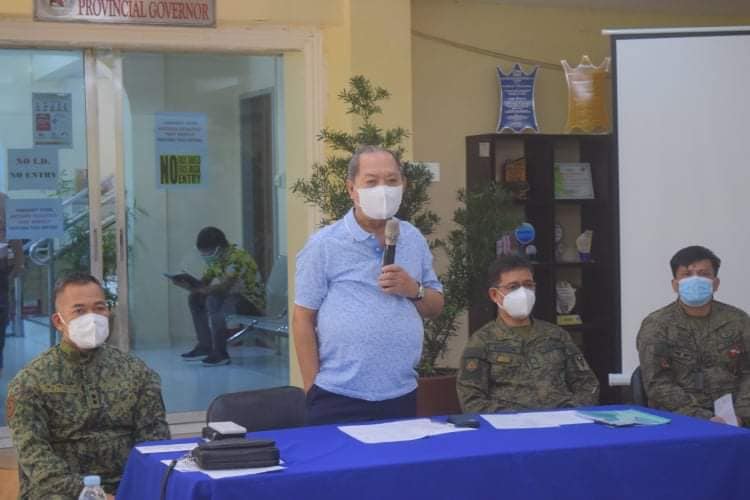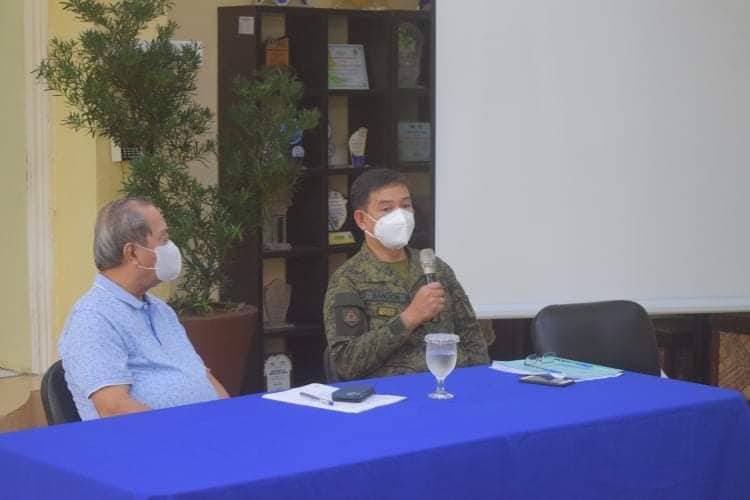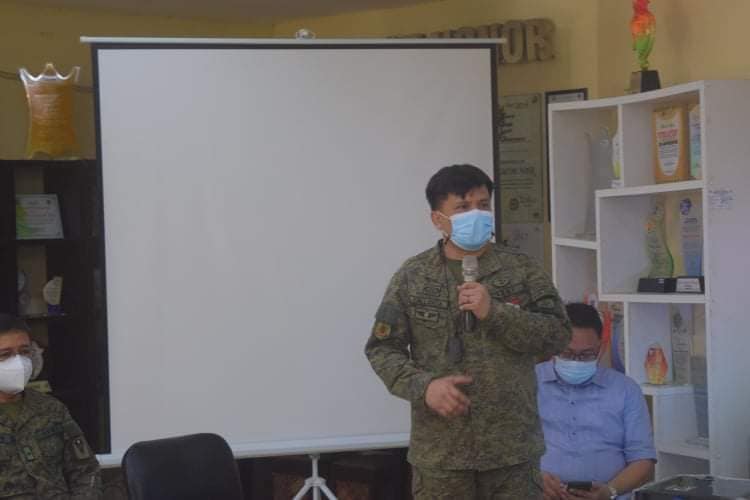Gov. Francisco 'Gob Lalo' Matugas fronted the historic launching of the Provincial Task Force to End Local Communist Armed Conflict (PTF-ECLAC) last June 29 at the Provincial Governor's Office Gazebo.

Accompanied by DILG Provincial Dir. John Reyl Mosquito and top brasses from the Armed Forces of the Philippines, Matugas explained the overall function of Local Government Support Fund-Support to Barangay Development Program(LGSF-SBDP) BARANGAY PROJECTS.

BGen. George Banzon of the 901st Brigade presented the surenderees, who manifested with P/Col. Noel Espinosa, PNP Provincial Director.

According to Matugas, at least 5 barangay core projects were given preferential attention that day, noting that the province has secured over 760 million in pesos from the national coffers.
Among those projects listed were the construction of farm-to-market roads in barangays Lahi, Camam-onan and Mahanub in Gigaquit as well as in barangays Dagsangon and Cambuayon in Bacuag.
It should be recalled that last December 4,2018, the National Task Force to End Local Communist Armed Conflict (NTF-ELCAC) was operationalized by virtue of Executive Order No. 70, issued and signed by no less than President Rodrigo Duterte.
As such, Duterte's policy institutionalized and systematized the government's "whole-of-nation" approach to effectively address the ongoing insurgency in the hinterlands.
It denoted, among others, the "whole-of-nation" stratagem as an antithesis to the prior policy which gave succor to peace talks.
Following the official suspension of peace talks between the Duterte government and the rebels, the President also denounced the Armed confrontations between his soldiers and the Reds whom he tagged as terrorists with his Presidential Proclamation 360.
Amidst criticism that development programs are mere band-aid solutions, the Barangay Development Program (BDP) has been glamorized by the LGUs as a flagship socioeconomic program for conflict-torn barangays.
More often than not, the military has widely regarded it as a keystone initiative to deal with the root causes of rebellion such as "hunger, disease, poverty, injustice and hopelessness" so that the grassroots would be less vulnerable to empathize with the communist movement. (RPN DXKS Surigao)




No comments:
Post a Comment